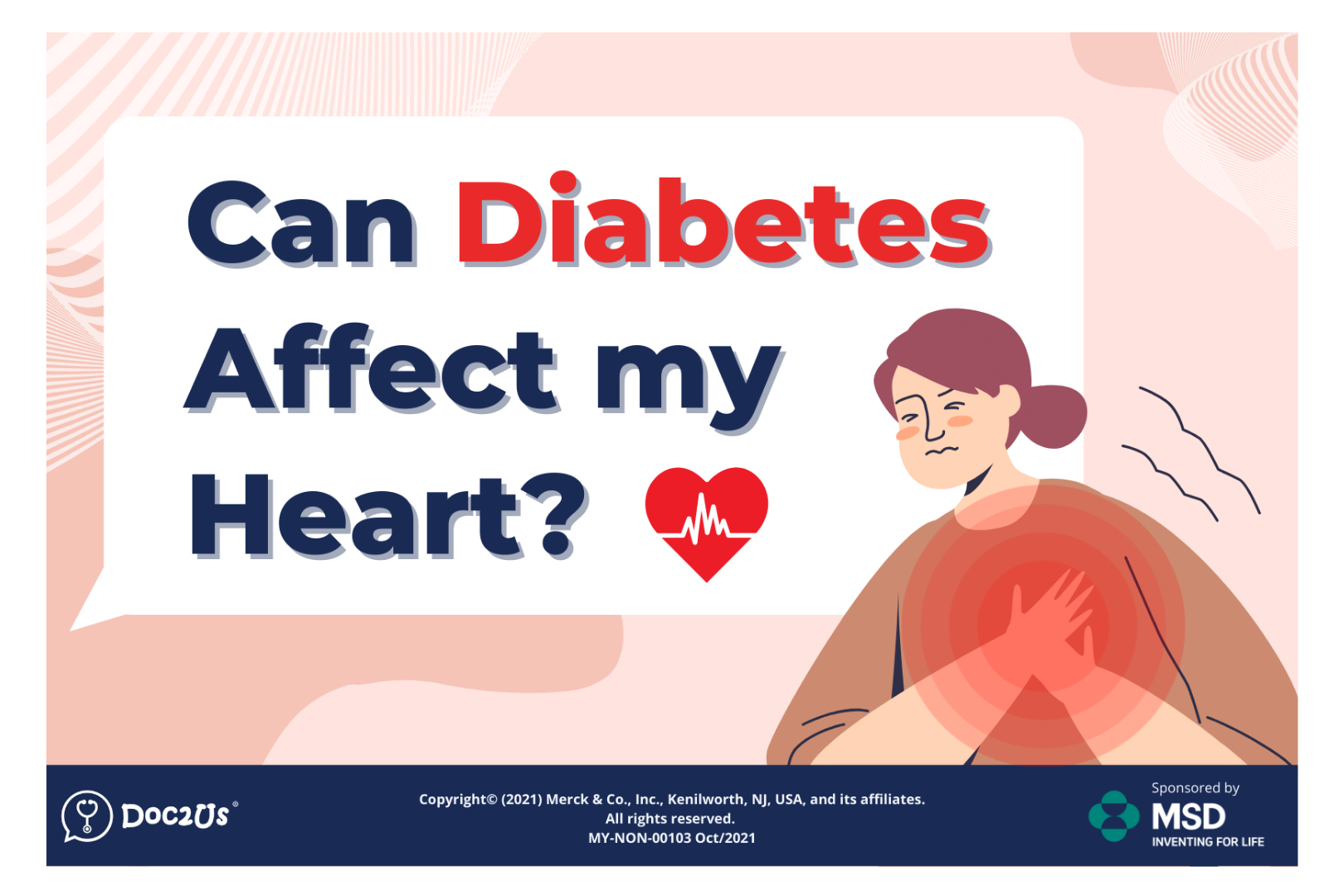Do you know?
That's approximately 3.9 million people aged above 18 years old! 1 The prevalence of diabetes increased with age, from 5.4% in age group of 20-24 years old, reaching a peak of 43.4% among the 65-69 years old. 2
So, what is diabetes?
Diabetes means the sugar, also known as glucose in your blood is too high. 3 Hence, the main goal is to keep the sugar in your blood under control.
Sugar is the vital fuel for your body. It is the energy source for the cells that make up your muscles and tissues. However, having too much or excess sugar in your blood can be DANGEROUS! 4
The sugar comes from the food you eat and the sugary beverages you drink. 3
To help lower the sugar in your blood, your body will release insulin. Insulin is a hormone made by pancreas and helps sugar from the food or drinks to get into the cells and be used as energy. 3
If you have diabetes, your body doesn't make enough insulin, or doesn't use insulin well. 3,4
What are the symptoms of diabetes should you take note of? 4
However,
The sugar in your blood can be high or low and both can be serious if untreated! 5 So, let’s learn about how to manage the highs and lows!
What is high blood sugar?
High blood sugar means when you have too much sugar in your bloodstream. It is also called hyperglycaemia (HY-per-gly-SEE-mee-uh). 5
As defined by World Health Organisation, you will have high blood sugar when your 6:
-
Blood sugar level is > 7.0 mmol/L when fasting
-
Blood sugar level is > 11.0 mmol/L 2 hours after meals
If left untreated, it may cause complications and damage to your internal organs! 6
Learn more about diabetes and heart disease/ kidney disease here:
 |
 |
| Can Diabetes Affect My Heart? | Diabetes hurts your kidney too? |
High blood sugar occurs when
-
You miss your diabetes medication 6
-
Eat more than regular daily meal 6,7
-
Sick or stressed 6,7
-
May have experienced the dawn phenomenon (a surge of hormones that the body produces daily around 4.00 am to 5.00 am) 7
Click here to know your blood sugar levels to help manage your diabetes:
 |
 |
| Ageing and Diabetes | Catch and manage diabetes early |
What is low blood sugar?
Low blood sugar is when your blood sugar levels have dropped to a low number that may urge you to take action in order to bring it back to your target range. 8
Low blood sugar is also called hypoglycaemia (hy-po-gly-SEE-mee-uh) 5 , which is when your blood sugar levels have fallen to < 3.9 mmol/L. 9
Be aware of the following symptoms of low blood sugar levels 8,9:
Treatment of low blood sugar 8,9
-
15 g of simple carbohydrates such as:
-
Measure the blood sugar level after 15 minutes
-
If the level is still < 3.9 mmol/L, repeat the STEPs above.
So, just remember the 15-15 Rule if you happen to experience low blood sugar
Once the blood sugar level has been returned back to normal range, you or your loved one should resume the usual meal or snack! 9
References:
- Institute for Public Health 2020. National Health and Morbidity Survey (NHMS ) 2019: Non-communicable diseases, healthcare demand, and health literacy—Key Findings. Accessed on: 10th December 2021.
- Institute for Public Health (IPH), National Institutes of Health, Ministry of Health Malaysia. 2020. National Health and Morbidity Survey (NHMS ) 2019: Vol. I: NCDs – Non-Communicable Diseases: Risk Factors and other Health ProblemsAccessed on: 10th December 2021.
- NIDDK. What is Diabetes? Available at: https://www.niddk.nih.gov/health-information/diabetes/overview/what-is-diabetes. Accessed on: 30th September 2021
- Mayo Clinic. Diabetes. Available at: https://www.mayoclinic.org/diseases-conditions/diabetes/symptoms-causes/syc-20371444. Accessed on: 30th November 2021
- ADA. Common Terms. Available at: https://www.diabetes.org/resources/students/common-terms. Accessed on: 30th November 2021.
- Diabetes.co.uk. Diabetes and Hyperglycemia. Available at: https://www.diabetes.co.uk/Diabetes-and-Hyperglycaemia.html. Accessed on: 30th November 2021.
- ADA. Hyperglycemia (High Blood Glucose). Available at: https://www.diabetes.org/healthy-living/medication-treatments/blood-glucose-testing-and-control/hyperglycemia. Accessed on: 30th November 2021.
- ADA. Hypoglycemia (Low Blood sugar). Available at: https://www.diabetes.org/healthy-living/medication-treatments/blood-glucose-testing-and-control/hypoglycemia. Accessed on: 30th November 2021.
- MOH. Clinical Practice Guidelines - Management of Type 2 Diabetes Mellitus (6th Edition) pdf. Accessed on: 30th November 2021.
-This article is supported by MSD-
MY-NON-00116 Dec/2021








